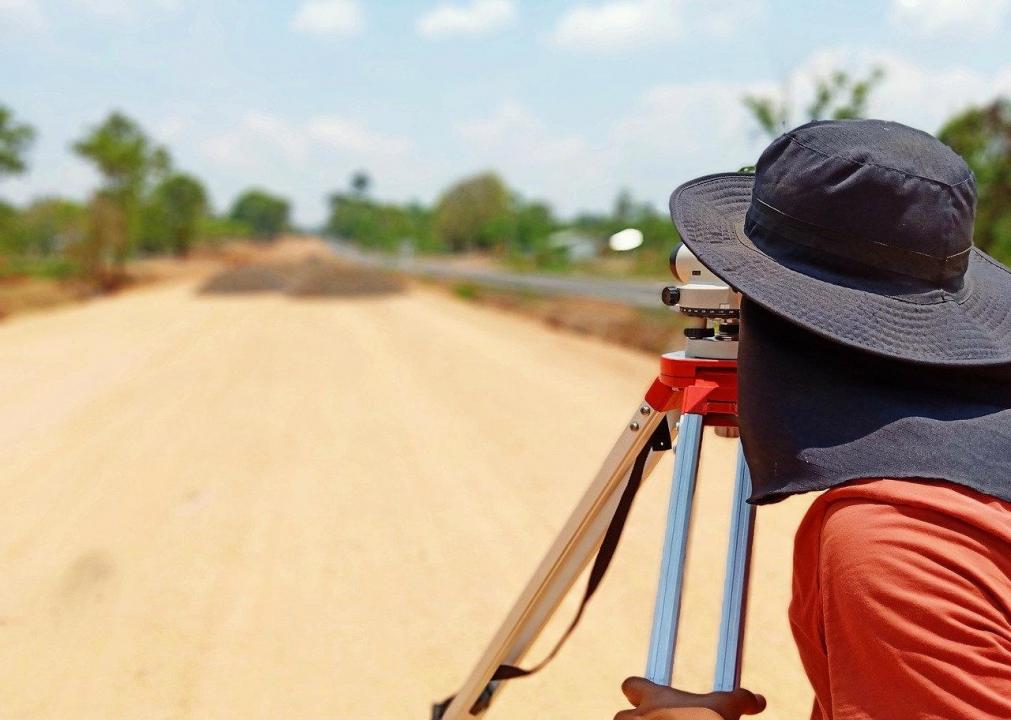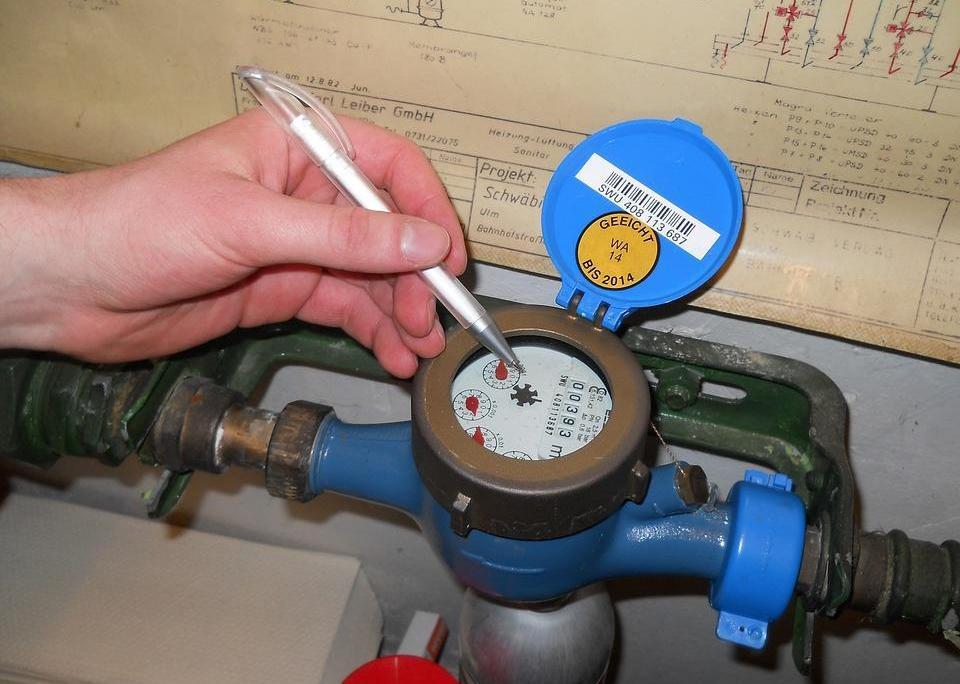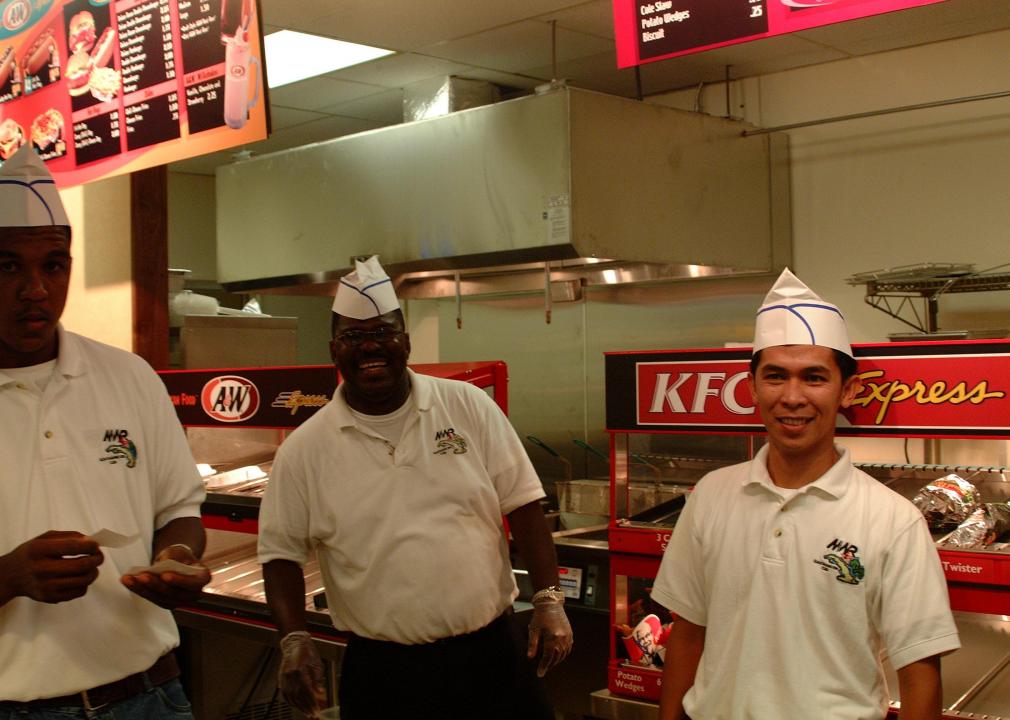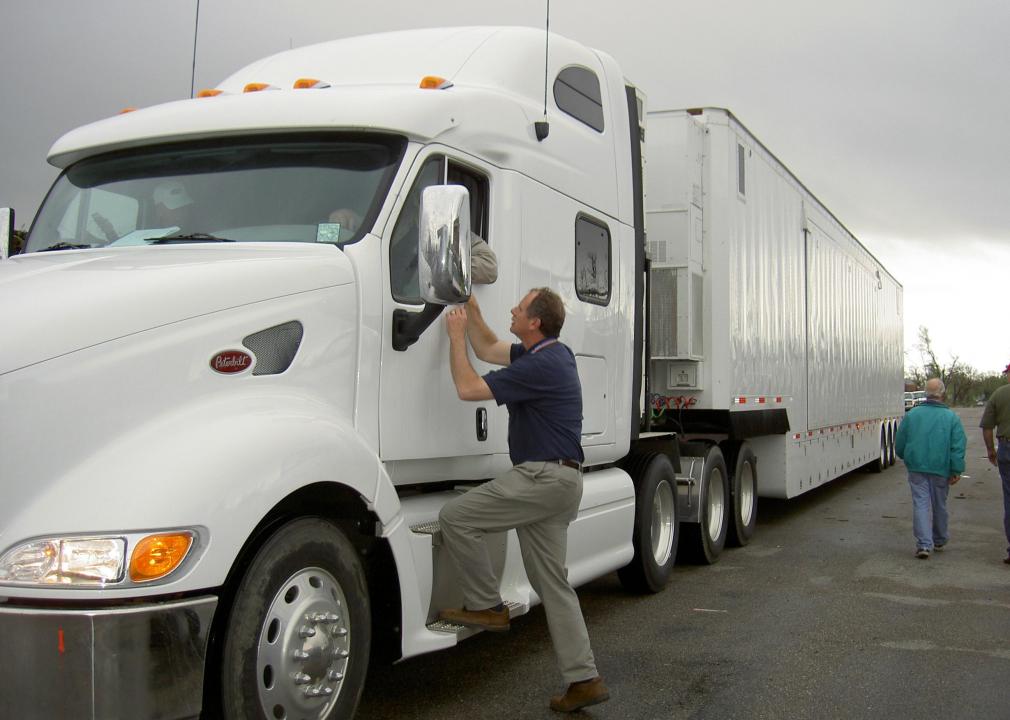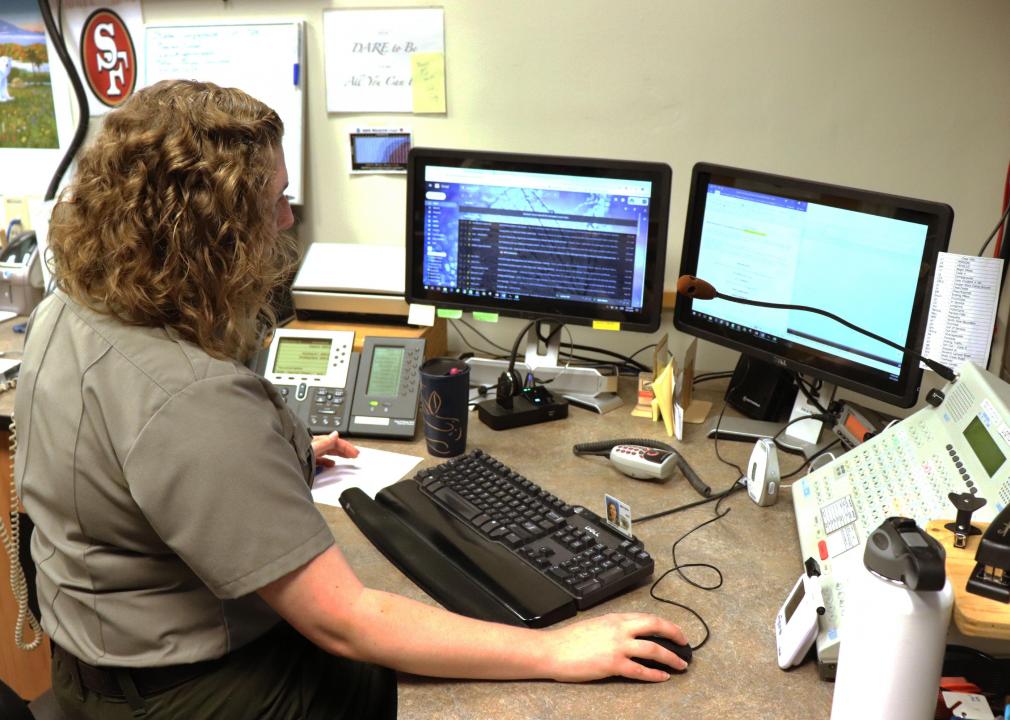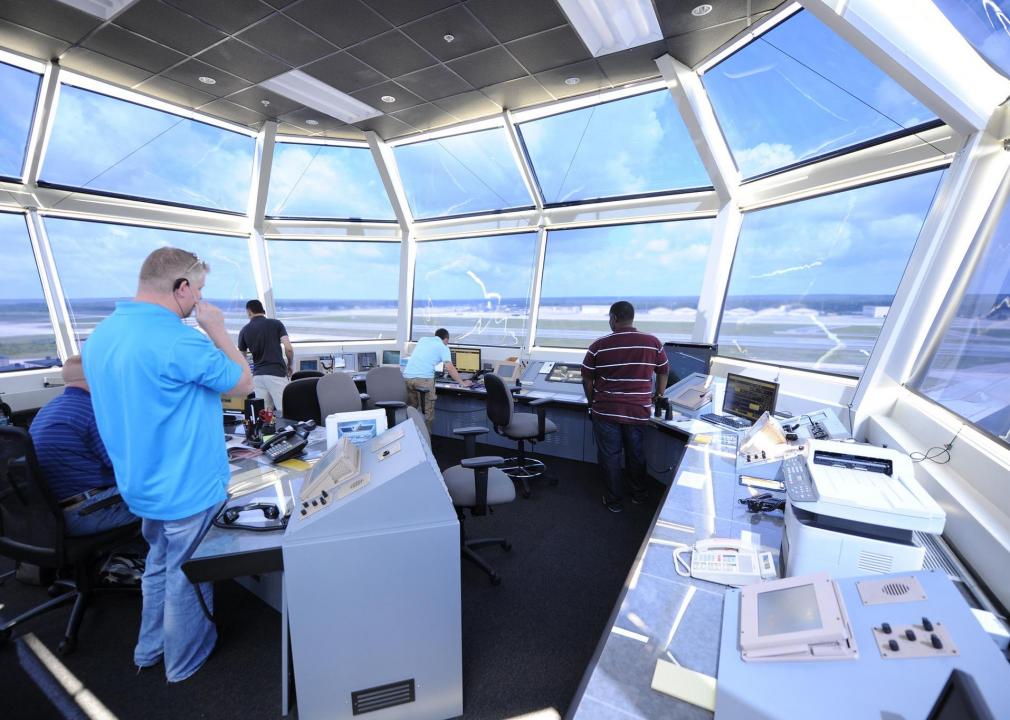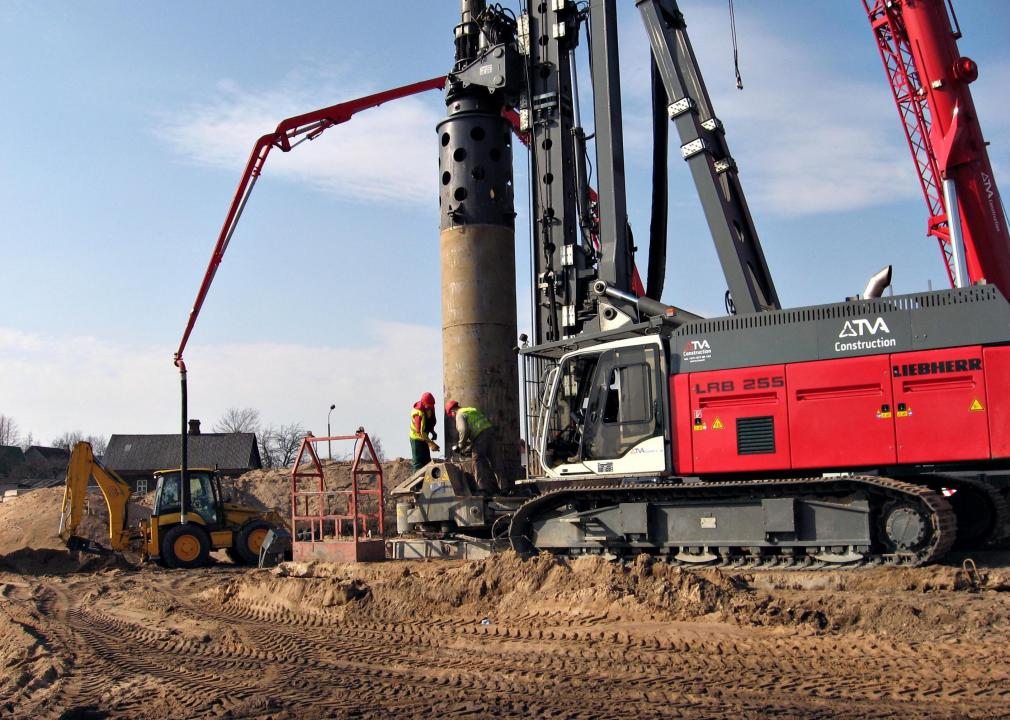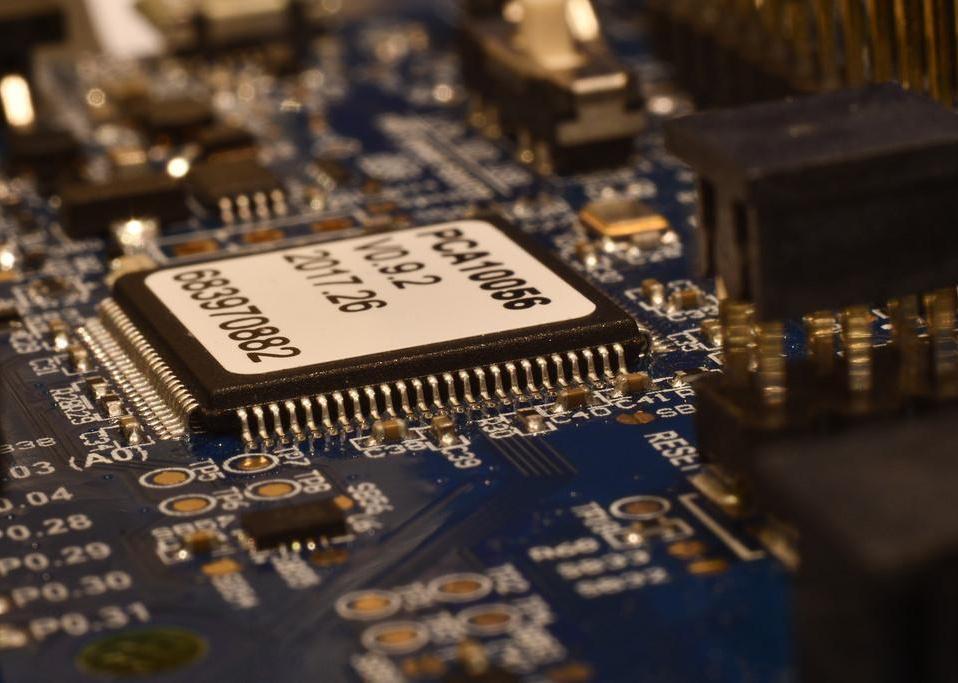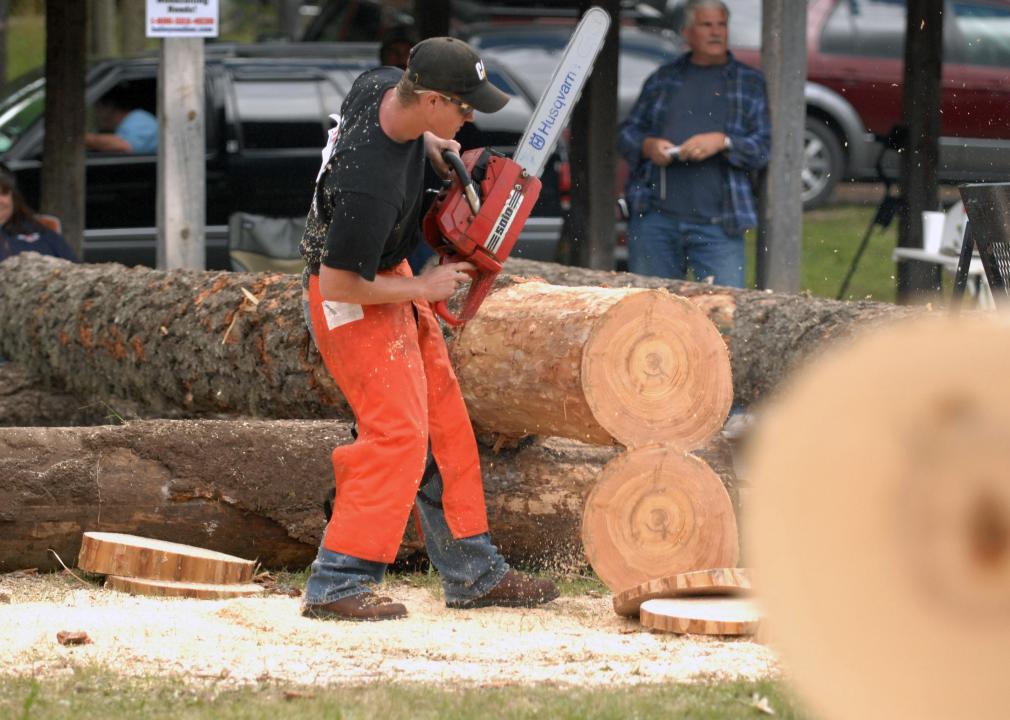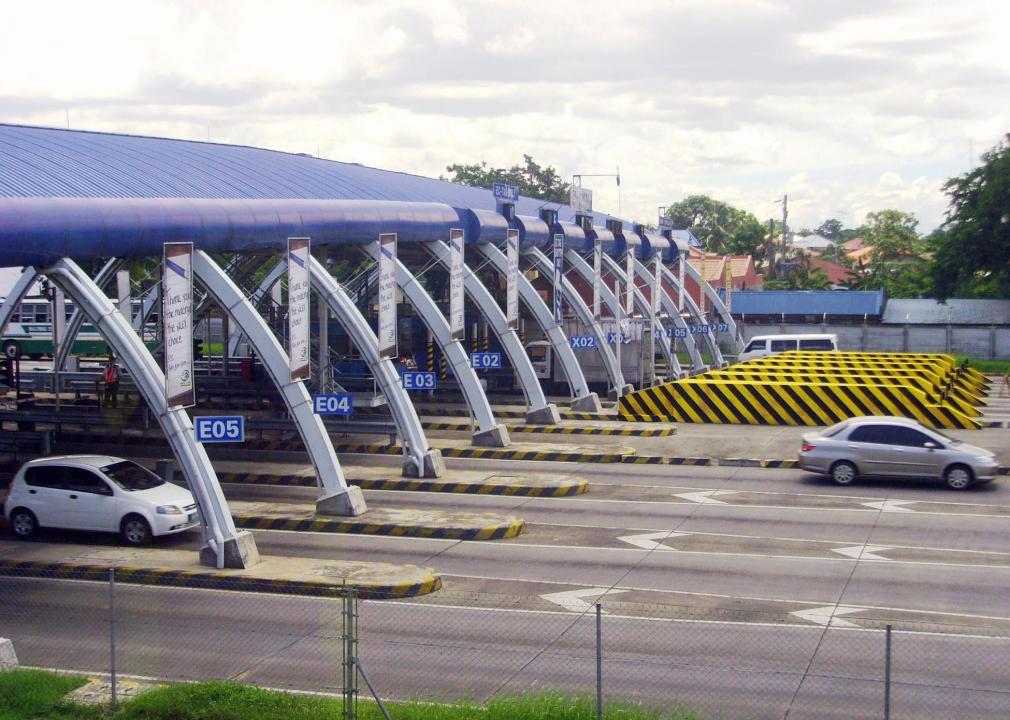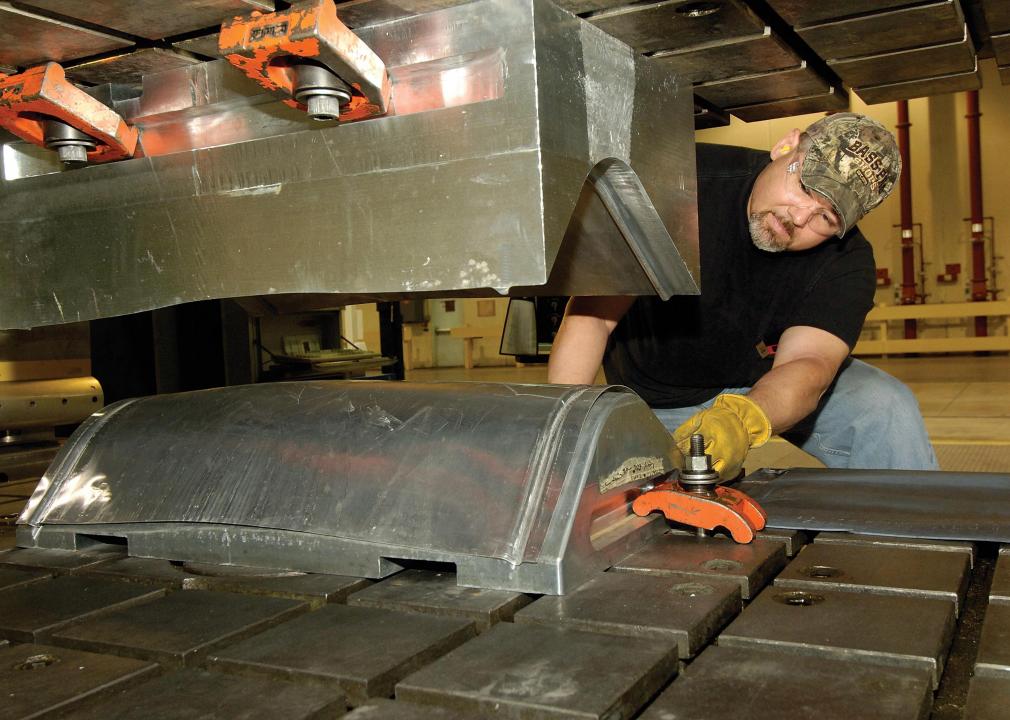Jobs that might not exist in 50 years

Arseniy Shemyakin Photo // Shutterstock
Jobs that might not exist in 50 years
In August 2020, jobless claims had been approaching 55 million since the start of the coronavirus pandemic. Due to a sluggish recovery, it’s projected that thousands of jobs are unlikely to ever return. Whether that’s because businesses will ultimately shutter (or permanently reduce staff) or industries will be reinvented, there are myriad unknowns when trying to chart projections for the economic future of the U.S. economy. A paper released in May 2020 by the Becker Friedman Institute at the University of Chicago projected that 42% of layoffs caused by the pandemic will be permanent.
In addition to fewer jobs being available in certain sectors, other employment sectors as a whole are at risk—and many were at risk long before COVID-19. The technology that makes our jobs easier may soon make some jobs scarce. In 1950, the job of elevator operator was among the 270 careers listed on the United States Census. That job title is now extinct, representing the only known instance of an entire occupation being obliterated by automation in the 50 years that followed. The next half-century may be less forgiving.
Sophisticated software, robotics, automation, artificial intelligence (AI), and changing trends threaten the livelihoods of everyone from taxi drivers and restaurant servers to computer programmers and librarians. Many economists predict that automation, not outsourcing, will lead to the loss of more than 1.5 million jobs in America’s manufacturing sector. These technical innovations will soon render many longstanding skills and trades obsolete—and the occupational Grim Reaper will discriminate according to class.
Many of the jobs most likely to disappear are among the last well-paying jobs one can get with only a high school diploma. Low-paying, unskilled jobs with low educational entry barriers are most susceptible to automation. These are the jobs that robots will do. Manufacturing will require greater technical skills to operate and program computers. Those who lose their jobs will largely be shut out of the high-paying, highly skilled jobs that remain, many of which will go to specialists tasked with tending to and improving upon the very machines and programs that replaced the human workers.
Here’s a look at high-risk careers that will probably wilt over the next 50 years.
You might not exist: Jobs with the highest divorce rates
![]()
Phil Doby // Flickr
Taxi driver
In a 2016 op-ed for the Los Angeles Times, Steven Greenhouse, a labor and workplace reporter for the New York Times, predicted that the rise of automated cars would erase 5 million American jobs. Few are expected to be hit harder than taxi drivers, who face unemployment not only from driverless vehicles but because of ridesharing apps like Uber as well. Forbes reported on a study that suggested many cabbies would be forced to join the enemy, becoming Uber drivers themselves.
Elvret Barnes // Flickr
Mail sorter, letter carrier, and clerks
Forbes predicted the positions of mail sorter, letter carrier, and clerk would soon join taxi driver on the ash heap of jobs. In 2010, the combined positions employed 524,300 postal workers. That number is expected to drop in 2020 to 385,500 for a loss of 138,500 jobs—more than a quarter of the workforce.

Skycolors // Shutterstock
Pilot
As early as 2016, the New York Post had already been reporting that pilots were likely to find their jobs on the chopping block, thanks to competition from robots. Autopilot features have long supported pilots in the air—in fact, pilots generally assume control of their airplanes only during takeoff and landing. Those two tasks, however, are being taught to their mechanical competitors, and it’s likely that both humans and cargo will soon be shuttled around in pilotless planes.

karen roach // Shutterstock
Bill, account collector
Few people will miss hearing from bill collectors and account agents, like the kind who call to bug you when you don’t pay up. Love them or not, USA Today offers evidence that this middle-class job is already disappearing, thanks to the rise of software and automation that can perform the same task. Another culprit: the global consolidation of overseas collection agencies.
Pixabay
Surveyors and mapping technicians
Although some specialized positions in the field require advanced education, most surveyors can enter this profession with only a high school diploma. That option, however, will likely soon be off the table as robotics and other technological advancements render their skills obsolete.
You may also like: Best places to retire on the East Coast
Daniel Fleming // Flickr
Parking enforcement
It’s bad enough when a robot steals your job, but a flying robot is something different altogether. That is exactly the airborne threat facing parking enforcement officers, once called “meter maids.” Drones can already deliver everything from packages to missiles with pinpoint precision. It’s likely that they’ll soon be recalibrated to observe parking offenders, and even deliver tickets.
Pixabay
Meter reader
If you live in a modern structure, chances are good that part of your tax bill is dedicated to paying someone to walk through your neighborhood and take readings of the outdoor utility meters. Soon, simple and cheap smart devices that are part of the mass energy storage movement will make that walk—and that job—unnecessary.
Paul Sableman // Flickr
Bus driver
Job insecurity will soon be a reality for millions of drivers of all sorts, thanks largely to automation and the rise of driverless vehicles. Among the hardest and likely soonest affected will be bus drivers. Self-driving electric buses are already a reality on the streets of Switzerland.
Minette Lontsie // Wikimedia Commons
Engine and machine assembler
Ever since Henry Ford perfected the assembly line, humans have worked alongside machines assembling sophisticated mechanical components like engines—and the human-to-machine ratio has been falling ever since. That steady drop, however, is quickly turning into an extinction-level event thanks to sophisticated automation and robotics.

Pixabay
Coal miner
Those touting the return of the coal industry might as well be telling unemployed Blockbuster employees that they’re going to bring back movie rental stores. According to the New York Times, engineers and coders now dominate the industry, and their skills propel the technology that does most of the actual mining. Even more, coal is a finite resource that is rapidly dwindling as the world embraces cleaner energy sources.
You may also like: The best streaming services in 2021
Noelene D // Flickr
Switchboard operator
If you’ve ever called a business and been asked to press buttons for options, you’ve interacted with a computer doing a job that was once done by a human switchboard operator. There are still some of them left, but they’re a dying breed: Nearly one in four switchboard operator positions have disappeared since 2010.

GUILLAUME SOUVANT // Getty Images
Computer operator
Computer operators, whose job entails entering commands, dealing with error messages, and monitoring systems, are rapidly being phased out thanks to software that can do everything they can do—and then some. About one in five computer operator jobs that existed in 2014 will be gone by 2024, according to USA Today.
NAVFAC // Flickr
Prepress technician
There was a time when typesetters arranged individual letters for each page of a print publication before it went to press. Technology eliminated that job and ushered in the era of the prepress technician, who also works to ensure the integrity of printed materials before the presses start running. Thanks to sophisticated publishing software, however, the tides have turned once more and the industry is expected to forfeit half its jobs over 10 years.
United States Navy
Fast-food worker
Fast-food restaurants are essentially assembly lines, and just as robots are beginning to dominate the assembly lines that churn out engines, so, too, will the ones that churn out burgers and fries. Robots are already running the show at one New York City Shake Shack.
Crystal Payton // Wikimedia Commons
Truck driver
The Guardian recently referred to truck drivers as “the last humans left in the modern supply chain.” They’re also the last of a dying breed. The largest auto companies and the largest tech companies are pouring billions of dollars into the emerging driverless vehicle industry, and truck drivers are clearly in the crosshairs of the coming revolution.
You may also like: Best value colleges in America
Wikimedia Commons
Print binding and finishing worker
From books to newspapers to magazines, it’s no secret that the print industry is in freefall, one of the earliest victims of online content and devices like e-readers. Binders and finishers are among the last humans to physically assemble print reading materials, but their repetitive and routine jobs can, and likely soon will be done by machines.

Centrill Media // Shutterstock
Wrangler and herder
Horses, dogs, and people have long been charged with corraling and moving large groups of cattle, sheep, and other domestic livestock. The people and their pooches, however, are getting out of the herding and wrangling business, whether they like it or not. Drones will likely soon do the work that was once the realm of cowboys.
Steindy // Wikimedia Commons
Referee
In 2018, the Daily Star predicted that giant leaps in artificial intelligence would lead to robots and computers muscling European soccer referees out of their jobs by 2030. That trend will likely hold true for sports—and referees—of all stripes. ESPN also reported that even the commissioner of Major League Baseball believes that flawlessly accurate computers will soon be available to replace umpires.
rawpixel // Flickr
Florist
When buying flowers, consumers are now much more likely to turn to a website or their local grocery store instead of their local florist. The downward trend for florists is so severe, in fact, that the industry shed more than 6,000 jobs from 2010 to 2020, according to jobs website Monster.com.
Pixabay
Photo processor
Although it’s been a generation since the masses dropped off film to be developed at their local drug store or one-hour photo, there are actually roughly 27,000 people still employed as photo processors. They largely serve customers who need digital photos edited and printed. But as home photo printers continue to improve and mobile-based editing technology advances, the last remaining photo processors will likely be phased out.
You may also like: The best streaming services for sports in 2021
PGBS // Wikimedia Commons
Telemarketer
According to The Guardian, few jobs are more endangered than telemarketing, which the publication gives a 99% chance of falling victim to automation. The highly repetitive job is a perfect target for machines, but don’t worry, those machines will probably find a way to call as soon as you sit down to eat dinner, as their human predecessors have always done.
Mount Rainier National Park // Flickr
Dispatchers
From Google Maps to Uber, people have more ways than ever to bypass traditional transportation dispatchers, who are clinging to one of the least secure jobs in existence. In 50 years, it’s hard to imagine that young people will be able to comprehend a time when people had to call another person to schedule a ride.
Tech. Sgt. Peter R. Miller/U.S. Air Force // Flickr
Air traffic controller
Like lighthouse masters of old, air traffic controllers have long been beacons for pilots, helping them find their destination airport and guiding them along their way. That guidance, however, is already being replaced with automation and it likely won’t take anywhere near 50 years for person-less flight towers to become a reality.
USDA // Flickr
Farm worker
Humanity will always be reliant on agriculture, but the farmworkers who for millennia have performed agricultural labor are already being replaced by the likes of automatic weeders, apple pickers, lettuce thinners, harvest drones, and vineyard pruners.

Vitali Michkou // Shutterstock
Insurance underwriter
Insurance companies are in the business of evaluating risk, and underwriters are, at least for the time being, the last line of defense in calculating that risk as it pertains to the potential for loss or profit. From life insurance to mortgage applications, computers are already instrumental in crunching the mountains of data needed to evaluate risk, and the human operators of those computers will likely go the way of the horse and buggy.
You may also like: 50 college majors that earn the least money
Pixabay
Data entry keyer
Experts predict there will still be 160,000 data entry keyers in 2026. That number, however, will represent a loss of more than one in five jobs compared to 2016. The process of manually keying information into the computers tasked with processing that information will soon be a job that doesn’t require human fingers.
Yale University // Flickr
Sonographer
The military invented robots capable of performing sonograms to get technology to soldiers on the battlefield without putting human sonographers at risk. Now, human sonographers are the ones who are at risk—of losing their jobs to the very robots designed to protect them, that is.
alinco_fan // Wikimedia Commons
Drilling and boring machine tool setters
There are already fewer than 18,000 people left who earn a living by tending to and operating drilling and boring tools in the manufacturing industry. The once-common job is set to dwindle even further to just over 14,000 jobs by 2024, thanks to automation and artificial intelligence. That’s a loss of one in five jobs in the near future.
Pixabay
Restaurant servers
Although automatic, self-ordering table kiosks are already available in many restaurants, the standard protocol of verbally placing an order with a human server is still standard dining protocol. That trend, however, is likely to change as AI improves to the point where robots can act as the liaison between diners and the kitchen. Robotic servers are already waiting tables in China.
Pfc. Dalton Precht // Wikimedia Commons
Gaming cage workers
When gamblers buy or cash in chips at casinos, the transaction is completed by a person behind bars—a gaming cage worker, that is. That trend is likely to become a thing of the past as casinos seek to eliminate human error and improve security by automating this job.
You may also like: Most common jobs in America 100 years ago
Pixabay
Locomotive firer
There is probably no job in America that is dying more quickly than that of the locomotive firer, the person tasked with riding trains and looking out for hazards on the track. There were only 1,200 locomotive firers left in 2016, and by 2026, it’s predicted that there will only be 300 of these endangered jobs left in existence.

FrameStockFootages // Shutterstock
Interpreter or translator
Machine translation has been in development for more than half a century, and for a long time, translators thought they were safe because computers could never learn to understand and capture the nuance of language, including accents, dialects, and secondary word meanings. Well, those computers are almost there and the machine translation industry is an $8 billion a year industry.
Pixabay
Purchasing agents
Companies hire purchasing agents to buy new inventory, from machines to clothing, when business is running low. Now, sophisticated inventory, tracking, ordering, and invoicing software can do that for them, which puts purchasing agents on shaky employment ground moving forward.
MyFuture.com // Flickr
Bank teller
People have bypassed tellers and used ATMs for decades to make withdrawals, check balances, and deposit checks and cash. The rise of mobile banking apps have reduced the relevancy of the human teller even more. Today, branches are smaller, the technology is in the front, and what Business Insider calls the “ATM of the future” will likely consign old-fashioned tellers to the annals of history.
Airman 1st Class Curt Beach // U.S. Air Force
Cashier
Many grocery stores already have self-checkout aisles that let ambitious customers bypass clerks and ring themselves up. The role of cashier is becoming less and less necessary, thanks to the high degree of repetition the job entails. Throw in mobile apps that let you pay on your phone even while you’re in a physical store, and it becomes clear that the person behind the cash register may not have a job for much longer.
You may also like: 50 most congested cities in America
James Starkey // Wikimedia Commons
Disc jockey
The DJ booth has always been one of the most coveted spots in the nightclub. Thanks to services like iTunes and Spotify, however, many of those booths are already staffed by machines. Many venues are already asking themselves why they should pay to hire disc jockeys to spin tunes with bulky equipment when they could plug in their phones and have complete control over their own playlists.
Adeolu Eletu // Unsplash
Financial adviser
The financial industry is already being disrupted by the rise of robo-advisers, automated platforms that use sophisticated algorithms and real-time information to offer custom-tailored investment advice. All of this comes with much lower costs than hiring a professional financial adviser, whose advice is subject to both human bias and human error. AI has not yet rendered the financial adviser obsolete, but the future is here and the clock is ticking.
Pixabay
Jeweler
Career experts are already expecting negative job growth of more than 12% for jewelers, thanks to the dominance of online shopping over brick-and-mortar jewelry store purchases in addition to the widespread outsourcing of the occupation. Not only are jewelry stores disappearing, but fewer people are taking their jewelry to get repaired, which paints a bleak picture for the role.

TB studio // Shutterstock
Tech support
“Have you tried restarting?” “Are you sure it’s plugged in?” These painfully unhelpful questions might soon be a thing of the past for anyone who calls tech support for help with a computer on the fritz, a printer that refuses to update drivers, or just about any device with a mechanical brain. Huge numbers of tech help desk support jobs have already been exported to cheap overseas labor, and many of those are on their way to automation.
maticulous // Flickr
Assemblers of processors and semiconductors
As is the case with so many highly automated jobs, semiconductor and processor assemblers have robots to blame for their already-disappearing jobs. Experts predict that more than 14,000 such jobs will disappear by the end of the decade. In 50 years, it’s likely that the chips themselves won’t even still be in use, much less the people who were once paid to make them.
You may also like: 15 charities where you can see your direct impact
Ministry of Information Photo Divison Photographer // Wikimedia Commons
Typist or word processor
Your smartphone allows you to dictate and transcribe notes just by talking into its microphone. Corporations have far more sophisticated transcription technology that is already sending typists and word processors the way of the dodo bird. Nearly one in five typist positions are expected to disappear in just the next few years alone.
401(k) 2012 // Flickr
Tax preparers
Tax firm H&R Block developed Watson, a computer that helps with tax preparation. TurboTax assists customers with its tax bot. Computers and programs like these, however, will likely soon gobble up the jobs of the very people they were designed to assist. Although millions of people are still employed as accountants, the writing is on the wall. Machines can now analyze massive data sets and organize the results efficiently enough to make tax preparation a real possibility. After all, crunching numbers is what computers were born to do.
Pixabay
Loan officer
Professionals whose jobs can be automated are at the greatest risk of technology-driven extinction. According to The Guardian, only telemarketers are more susceptible to automation than loan officers, who collect and analyze applicant information and then process it for the purpose of either greenlighting or rejecting loan applications. That’s exactly the type of work most at risk of total machine takeover.
Airman 1st. Class Veronica Salgado // U.S. Air Force
Lumberjack
Long considered the job that thoroughly embodied manliness, the work of lumberjacks is soon not likely to be done by humans at all. The world is moving away from wood, and like lumberjacks’ colleagues in the coal mines, the difficult, dangerous work of timber harvesting is now conducted largely by efficient and highly technical machines.

ShkelzenRexha // Wikimedia Commons
Watch repair technician
Like jewelers, watch repair technicians are disappearing. It’s expected that one in four jobs in the industry will be gone by the end of the decade ending in 2024. Cleaning, fixing, and tuning timepieces is a service that fewer and fewer people seek. In the future, it’s likely that robots will easily handle this delicate, precise work.
You may also like: 50 best public colleges ranked from least to most expensive
adkranz // Wikimedia Commons
Toll taker
All the way back in 2011, NBC reported that the Florida Turnpike was eliminating the option to pay with cash and announced the layoffs of the 200 people who were paid to receive and make change for that cash. It was just one domino of many to fall. The rise of electronic toll-taking systems like E-ZPass in the 1990s quickly made the job of toll taker feel archaic. A generation later, in 2017, the last manned toll booth in South Florida closed. In 50 years, the concept of handing cash out of a car window to a person in a booth will almost certainly be a distant memory.
jeshua.nace // Wikimedia Commons
Librarian
Librarians don’t want to hear that their jobs are in mortal danger, but they are. Computers turned the age-old card catalog into a museum relic, and schools stopped teaching the Dewey Decimal System. Now, thanks to a bevy of book-related devices and technologies, as well as universal search tools like the all-familiar Google, librarians—and even the libraries they serve—are becoming fewer and fewer.

Canva
Computer programmer
Once listed among the most coveted white-collar jobs in the world, computer programmers wrote the codes that drove the machines that changed the world. Unfortunately, those machines are now so good at their jobs that they’ll likely soon have the ability to do the work of the very men and women who gave them life in the first place.

Arseniy Shemyakin Photo // Shutterstock
Flight attendant
It’s becoming clearer with every new technological update that pilots aren’t the only airborne employees facing a permanent grounding. As early as 2012, the Skybot automated bartender was already on planes helping flight attendants ferry drinks to passengers. By 2016, Pepper the robot could remember every passenger’s flight information, take requests, give information about connecting flights, and prowl the aisles while his human colleagues were required to be belted into seats. That leap happened in just four years—imagine what the next 50 will hold.
USAF Margo Wright // USAF
Metal and plastic mold makers
By 2024, there are projected to be 25% fewer metal and plastic mold makers compared to 2014. There will be fewer than 100,000 of these positions by then, thanks largely to automation, robotics, and technological advances like 3D printing.
You may also like: The best streaming services for football in 2021


